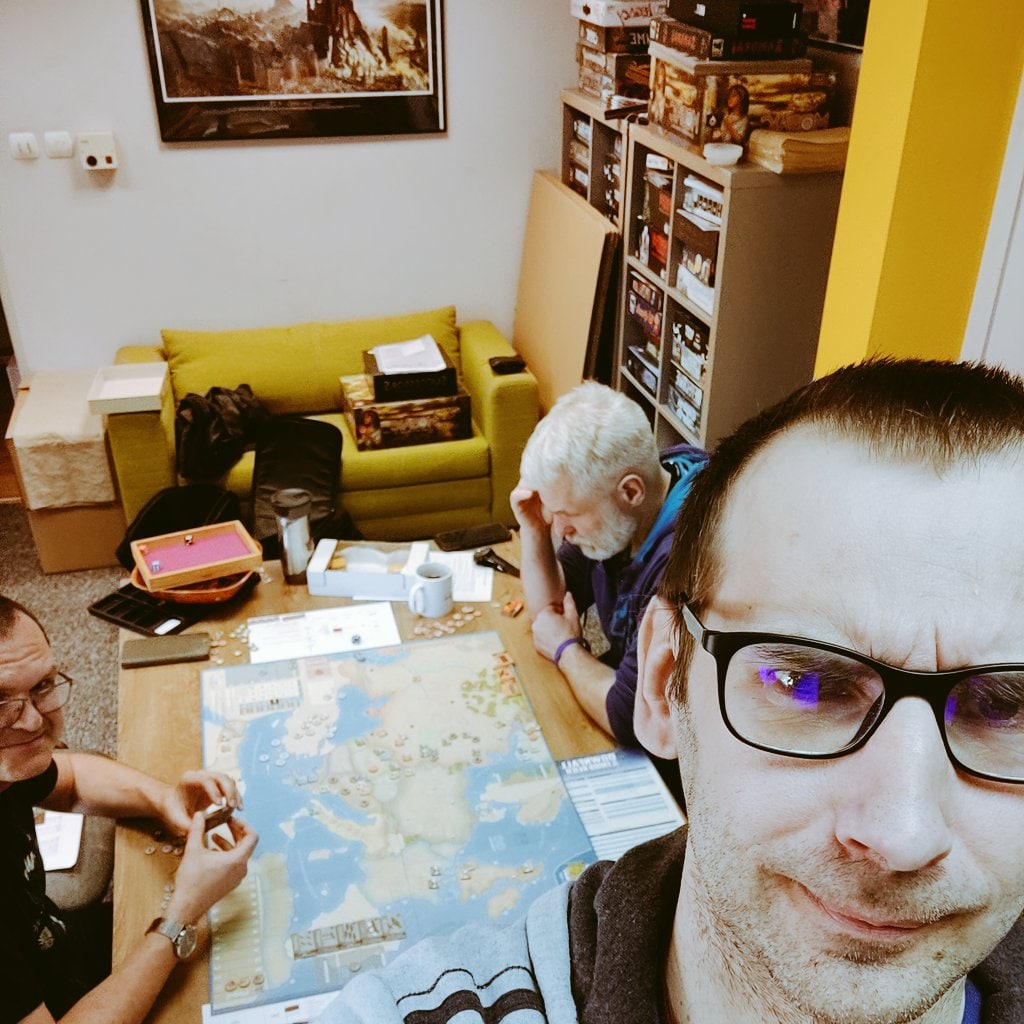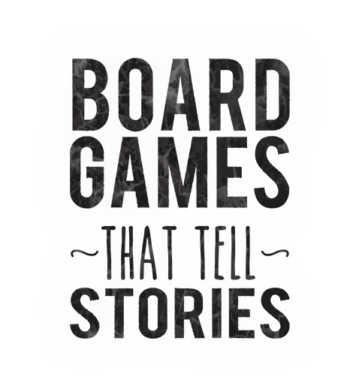A little rough on the edges

It had no right to succeed. Not that I wasn’t curious or intrigued. I wanted it to be a great experience, but I just knew it was bound to fail.
Even before it all started, I said: “After 45 minutes, I will stop listening to the rules explanation. I have my limit of information absorption, and it’s exactly 45 minutes.”
And, of course, he didn’t explain all the rules in 45 minutes. It took him another 15 minutes, but I stopped listening. I’m a wordy person—if I say I will process nothing more, I will process nothing more. I had to learn the rules of transporting ground troops with amphibious aircraft in practice when German soldiers landed on my shore in Plymouth.
Przemek, who was explaining the rules, wanted to make it easier for us. He prepared three A3 pieces of paper with tables describing the rules and actions of smaller factions in the conflict—Yugoslavia, Belgium, Greece, and a dozen other countries. Player’s cheat sheet. On three A3 pieces of paper. For some people, it’s helpful. For others, it’s a reason for a heart attack before the game.
I wondered if we were playing a war game or a horror game. Even before the game started, Przemek had reached into his bag for a stack of densely printed paper.
“What’s this?” I asked.
“Special rules and exceptions,” he said.
After my friends revived me and I regained consciousness, he explained that every year of the conflict: 1940, 1941, 1942, 1943, 1944, and 1945, had different sets of special rules and exceptions from the overall rules. “But don’t worry,” he said. “For every year, I have a separate A4 sheet with the exception list. I came prepared.”
Or at least that’s what I think he said, because I passed out again before he finished the sentence.
***
Four and a half hours later, we were almost in the middle of our playthrough. It was 1:30 p.m. when we started the year 1942, and the game entered the Total War phase, finally allowing me to perform five actions in my turn.
It’s very interesting, so allow me to explain. In four turns in 1940 and four turns in 1941, the Russians have 2 actions, the British have 2 actions, and the Germans have 3 actions. You probably think: “How unbalanced! A player who controls the Reich has 3 actions, and the Allies have 4 actions in total!”
Actually, it’s not that bad. You see, the Reich has submarines they can easily send to the North Sea and decrease the number of the Allies’ actions by one.
What a wonderful time I had during these four hours… 2 actions for the Russians, 3 for the Reich, one for me because of the submarines… 2 for the Russians, 3 for the Reich, one for me because of the submarines… 2 for the Russians, 3 for the Reich, one for me…
To say that I wasn’t exactly satisfied with having one action per turn is a huge understatement.
***
We finished the game at 5:30 p.m., after eight hours of struggle. The Reich lost, even though the player who controlled them was a genius—he moved the Italian troops to the Ural, destroyed the USSR slice by slice, took over a large chunk of Britain, and muscled into every fragment of the battlefront, but eventually, he lost. The win conditions are, to say the least, a little weird, and suspiciously simple, not providing the Reich with any bonuses for the whole eight hours of gameplay. To put it simply, if Berlin falls in the last round, the Reich loses. No matter how excellent its offense was during the game.
Summarizing:
Player’s cheat sheet in the form of three pieces of A3 paper.
Six pages of exceptions.
Four hours of agony with just one action per turn.
Eight hours of struggle, only to discover that win conditions are absurd.
I had the time of my life.
Without a doubt, it was the best Board Game Saturday I had in a very long time.
***
For me, historical wargames are a nice diversion from all the other board games I play everyday. From all the modern, perfectly designed games, where everything—graphics, components, rules, gameplay—is first-class. In our hobby, even one ambiguous rule or one imperfect component is sometimes enough to make the game easily forgotten. Playing modern board games, I feel like one of these gourmets who tour the restaurants and grant them Michelin stars. One small lapse, and you go three stars down because the competition is so strong. There are so many titles to discover and play, and you have no time to spend on an interesting, but slightly imperfect project.
In the Downfall of the Third Reich, almost everything is imperfect. But I played it to have a good time and spend a great Saturday with my friends, not to see how many stars I would grant it. I played it with a sheer desire to have fun. And that’s what it was—fun. I don’t know if I recommend this game. It has countless problems. But I definitely recommend you sometimes play a game without stepping into the role of a Michelin reviewer, who focuses on leaving ratings on BGG, writes snarky posts on social media, and analyzes every problem. I recommend you to play just to have a damn good time.


 I strongly believe that good board game is the one that tells a good story. You play it and suddenly you are sucked into it, you feel chills on the skin. Emotions grow. In a moment you defend castle. You hear roar of warriors. You smell boiling oil. You are into it.
That's how I design my games. I always want to tell a good story. I want players to be into it. As deep as possible.
I strongly believe that good board game is the one that tells a good story. You play it and suddenly you are sucked into it, you feel chills on the skin. Emotions grow. In a moment you defend castle. You hear roar of warriors. You smell boiling oil. You are into it.
That's how I design my games. I always want to tell a good story. I want players to be into it. As deep as possible.




Amen, brother! Play games for FUN. It’s not a tournament when you play games with friends in casual settings. It’s all about socializing and having FUN.
BTW, what game is this?